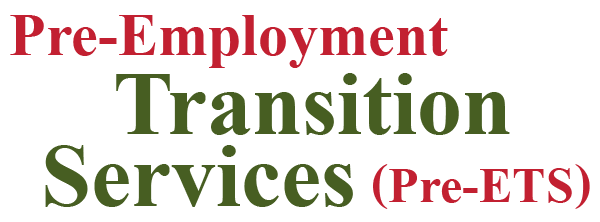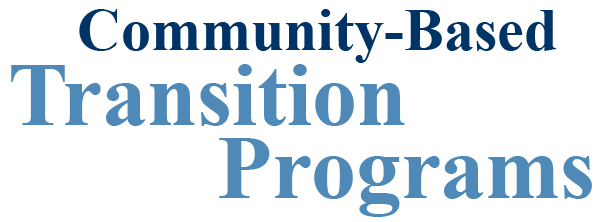Reference this module as:
Morningstar, M.E., Lattin, D.L., Erickson, A.G. (2008). Community-based transition programs. [Online Training Module]. Lawrence, KS: University of Kansas, Department of Special Education. Retrieved from: www.transitioncoalition.org
Credits:
- Graphic Design: Ginny Weaver Design
- Programming: Ginny Weaver Design and ERI, Inc.
- All contents Copyright 2008 by the Transition Coalition
References:
Grigal, M., Hart, D., Papay, C., Smith, F., Domin, D., & Lazo, R. (2020). Executive Summary of the Year Four Annual Report of the TPSID Model Demonstration Projects (2018-2019). Think College Fast Facts, Issue No. 26. Boston, MA: University of Massachusetts Boston, Institute for Community Inclusion
Grigal, M., Papay, C., Smith, F., Hart, D., & Verbeck, R. (2019). Experiences that predict employment for students with intellectual and developmental disabilities in federally funded higher education programs. Career Development and Transition for Exceptional Individuals, 42(1), 17-28.
Carter EW, Austin D, Trainor AA. Predictors of Postschool Employment Outcomes for Young Adults With Severe Disabilities. Journal of Disability Policy Studies. 2012;23(1):50-63. doi:10.1177/1044207311414680
Lee, H., & Morningstar, M. E. (2019). Exploring predictors of community participation among young adults with severe disabilities. Research and Practice for Persons with Severe Disabilities, 44(3), 186-199.
Lipscomb, S., Haimson, J., Liu, A.Y., Burghardt, J., Johnson, D.R., & Thurlow, M.L. (2017). Preparing for life after high school: The characteristics and experiences of youth in special education. Findings from the National Longitudinal Transition Study 2012. Volume 2: Comparisons across disability groups: Full report (NCEE 2017-4018). Washington, DC: U.S. Department of Education, Institute of Education Sciences, National Center for Education Evaluation and Regional Assistance.
Mazzotti, V. L., Rowe, D. A., Kwiatek, S., Voggt, A., Chang, W. H., Fowler, C. H., ... & Test, D. W. (2021). Secondary transition predictors of postschool success: An update to the research base. Career Development and Transition for Exceptional Individuals, 44(1), 47-64.
NTACT, Center for Parent Information and Resources (2020). Secondary Transition Considerations and Guiding Questions for Youth Exiting from High School. https://thinkcollege.net/resource/transition-planning/guiding-questions-for-youth-exiting-from-high-school
Parker, J. S., Amabile, A., Oliver, E., Garnes, J., & Sarathy, A. (2020). Facilitators and barriers to African American high school students' self‐determination skill expression. Psychology in the Schools, 57(8), 1289-1308.
Scott, L. A., Thoma, C. A., Gokita, T., Bruno, L., Ruiz, A. B., Brendli, K., ... & Vitullo, V. (2021). I'm Trying to Make Myself Happy: Black Students With Intellectual and Developmental Disabilities and Families on Promoting Self-Determination During Transition. Inclusion, 9(3), 170-188.
Test, D. W., Mazzotti, V. L., Mustian, A. L., Fowler, C. H., Kortering, L., & Kohler, P. (2009). Evidence-based secondary transition predictors for improving postschool outcomes for students with disabilities. Career Development for Exceptional Individuals, 32(3), 160-181.
Wehman, P., Sima, A. P., Ketchum, J., West, M. D., Chan, F., & Luecking, R. (2015). Predictors of successful transition from school to employment for youth with disabilities. Journal of occupational rehabilitation, 25(2), 323-334.
Wilt, C. L., & Morningstar, M. E. (2018). Parent engagement in the transition from school to adult life through culturally sustaining practices: A scoping review. Intellectual and developmental disabilities, 56(5), 307-320.


